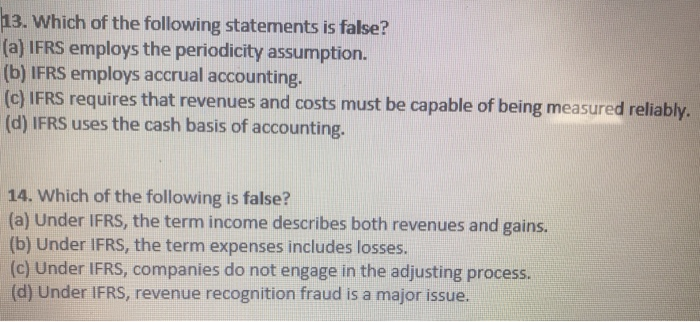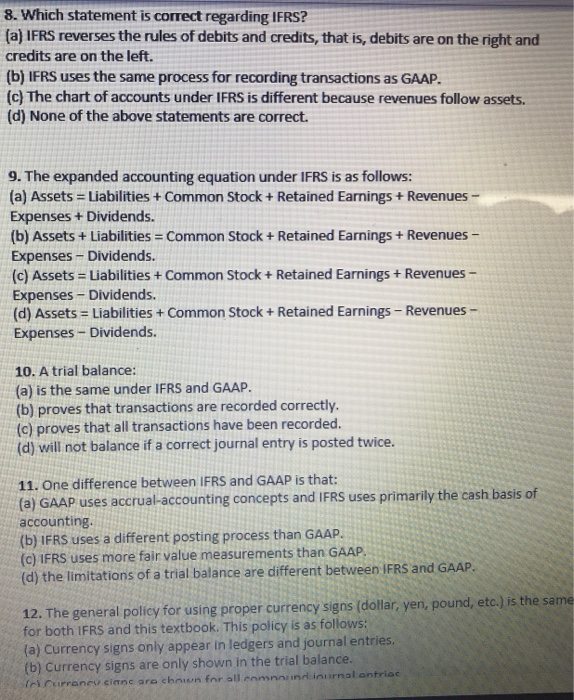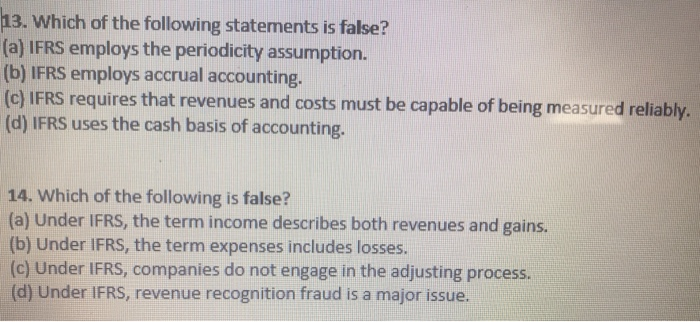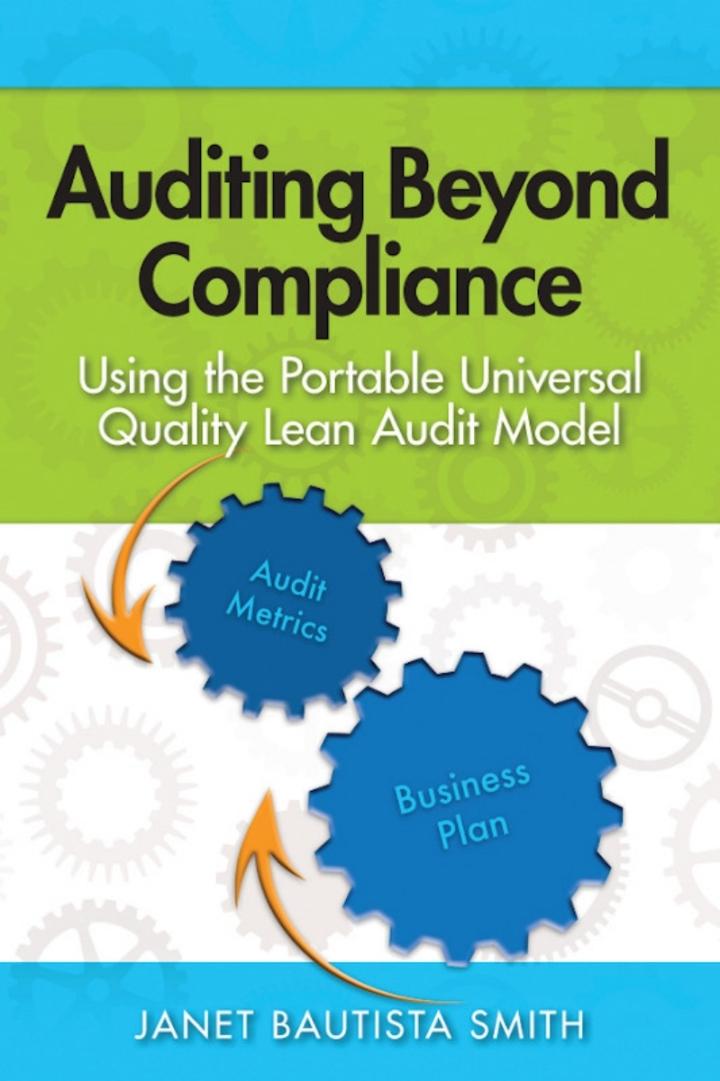
8. Which statement is correct regarding IFRS? (a) IFRS reverses the rules of debits and credits, that is, debits are on the right and credits are on the left. (b) IFRS uses the same process for recording transactions as GAAP. (c) The chart of accounts under IFRS is different because revenues follow assets. (d) None of the above statements are correct. 9. The expanded accounting equation under IFRS is as follows: (a) Assets = Liabilities + Common Stock + Retained Earnings + Revenues - Expenses + Dividends. (b) Assets + Liabilities = Common Stock + Retained Earnings + Revenues - Expenses - Dividends. (c) Assets = Liabilities + Common Stock + Retained Earnings + Revenues - Expenses - Dividends. (d) Assets = Liabilities + Common Stock + Retained Earnings - Revenues - Expenses - Dividends. 10. A trial balance: (a) is the same under IFRS and GAAP. (b) proves that transactions are recorded correctly. (c) proves that all transactions have been recorded. (d) will not balance if a correct journal entry is posted twice. 11. One difference between IFRS and GAAP is that: (a) GAAP uses accrual-accounting concepts and IFRS uses primarily the cash basis of accounting. (b) IFRS uses a different posting process than GAAP. (C) IFRS uses more fair value measurements than GAAP. (d) the limitations of a trial balance are different between IFRS and GAAP. 12. The general policy for using proper currency signs (dollar, yen, pound, etc.) is the same for both IFRS and this textbook. This policy is as follows: (a) Currency signs only appear in ledgers and journal entries, (b) Currency signs are only shown in the trial balance. Currencuciane are chun for allem inurnal antriae 13. Which of the following statements is false? (a) IFRS employs the periodicity assumption. (b) IFRS employs accrual accounting. (c) IFRS requires that revenues and costs must be capable of being measured reliably. (d) IFRS uses the cash basis of accounting. 14. Which of the following is false? (a) Under IFRS, the term income describes both revenues and gains. (b) Under IFRS, the term expenses includes losses. (c) Under IFRS, companies do not engage in the adjusting process. (d) Under IFRS, revenue recognition fraud is a major issue. 13. Which of the following statements is false? (a) IFRS employs the periodicity assumption. (b) IFRS employs accrual accounting. (c) IFRS requires that revenues and costs must be capable of being measured reliably. (d) IFRS uses the cash basis of accounting. 14. Which of the following is false? (a) Under IFRS, the term income describes both revenues and gains. (b) Under IFRS, the term expenses includes losses. (c) Under IFRS, companies do not engage in the adjusting process. (d) Under IFRS, revenue recognition fraud is a major issue









